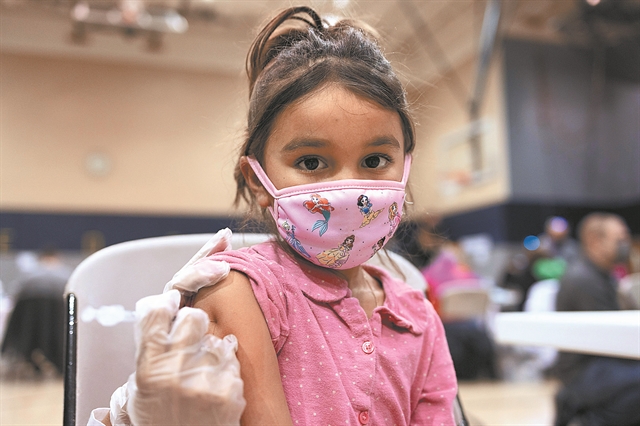The “Freedom” campaign for children aged 5-11 has officially started, with the scheduled appointments for the first vaccine installments already being carried out, decisively strengthening the “wall of immunity”. In fact, the demand recorded is so high that now the appointments are exhausted.
In total, more than 31,000 appointments have been made, with the Secretary-General for Primary Health Care, Marios Themistocleous, stating that the supply of baby vaccines against Covid-19 will determine the “unlocking” of the new available vaccine dates. He adds that in the new year the situation will be normalized.
At the same time, members of the National Vaccination Committee are building another wall against the mistrust and doubts expressed by many parents, stressing at every opportunity that vaccines are safe and effective, while answering critical questions.
1. Why should I vaccinate my child since the disease at his age is mild?
To protect it, so as not to interfere with the process of education and extracurricular activities and to contribute to the “wall of immunity” that is so important for our overall return to everyday life. As a rule, the risk of serious Covid-19 infection is small but real. Rarely, do children develop the multisystemic inflammatory syndrome (MIS-C), which is associated with Covid infection, and is particularly concerned about the persistence of symptoms after illness for many weeks (long Covid).
2. What do recent studies show about the additional risks that children face from the pandemic virus?
According to Maria Theodoridou, chair of the Hellenic Vaccination Committee, a new study from Scotland published in Lancet concerning Respiratory Medicine found that children under the age of 17 with uncontrolled asthma were three to six times more likely to be hospitalized due to Covid: in Scotland this corresponds to around 9,000 cases and in the United Kingdom to 109,000 cases. “This study was essentially requested by the relevant National Vaccination Committee of England for the risk assessment”, she clarified.
3. Are vaccines just as effective for an underweight six-year-old and an overweight 10-year-old?
Yes. Vaccine studies have been based on the age group of the child and the maturity of the immune system to respond to the vaccine and not on his physique or other developmental indicators.
4. Can children with allergies be vaccinated?
Yes. Common allergies to food, drugs, environmental allergens, dyes, insect bites are not contraindications. Vaccination is contraindicated in rare cases of allergy to the components of mRNA vaccines (Peg polyethylene glycol and polysorbate 80). Children with a history of allergies remain in the vaccination center for follow-up for 30 minutes after vaccination.
5. Is antipyretic recommended before vaccination?
No. It is not indicated prophylactically, because it can reduce the body’s immune response. However, if the child develops a fever or myalgia after vaccination, he or she may be given an antipyretic / painkiller.
6. Can the vaccine affect fertility or the menstrual cycle in young adolescents?
No. The mRNA vaccine molecule is destroyed as soon as it completes its mission in the body and is eliminated from the body. There is no biological link between vaccine and fertility and no harmful effects have been found on male and female fertility.
7. Can the mRNA vaccine cause heart damage?
In rare cases, m-RNA vaccines have been associated with inflammation of the myocardium or pericardium. These manifestations are more common in boys aged 12 to 29 years and occur a few days after the second dose of the vaccine. In most cases, the disease is self-limiting. The symptoms are: Chest pain, difficulty breathing and palpitations. In this rare case you need to contact a doctor and fill in the yellow card. It is emphasized that Covid disease causes a multiplicity of cases of myocarditis.
8. I am afraid of side effects that may occur years after vaccination.
Most side effects of the vaccine occur in the first few weeks after administration. The mRNA vaccines are destroyed by the body within hours after sending the “signal” for the production of antibodies. No component of the vaccine accumulates in the body to bind to long-term side effects.





